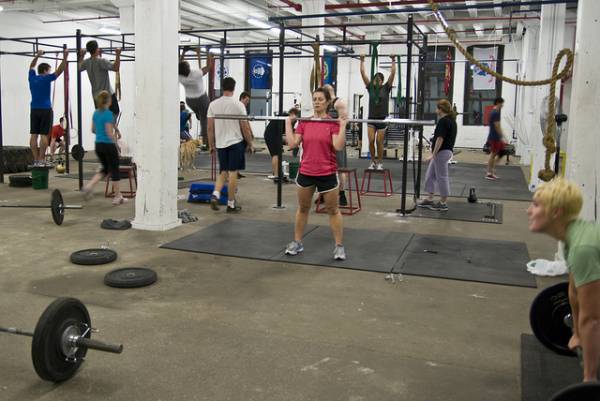Your family and friends have suggested it for years, your colleagues have seen you doodling names and logos during meetings, and even you even have the blessing of your rabbi – so you bite the bullet and decide to finally realise the dream of opening your own gym.
It’s an exciting enterprise and while you will want to focus on the fun stuff – like choosing equipment – you need to remember that it is a business and there are key financial decisions that you have to make. One of the most important is the negotiation of your lease. And whilst many of us have rented homes, a commercial lease is totally different.
When I leased my own commercial property in Bury St. Edmunds I found there was a lot I should have asked before signing on the dotted line. Here are five questions to think about before signing your gym lease:
How Much Should I Be Paying in Rent?
There are a large number of factors that will determine how much you pay per square foot, including the length of your lease and the condition the space is in. Keep it simple. Remember the larger the space, the less you will pay per square foot. The landlord makes this compromise because they want their building to be as full as possible. However, don’t confuse things and assume that means you should rent a larger space than is needed.
It is critical that you know going into your negotiations how big you want your gym to be and what your budget is for rent. When you are quoted prices, don’t accept them as final. You have every right to ask the landlord to lower the rent. The worst they can say is no, but you might find they’ll meet you somewhere in the middle.
So how do you know what is a reasonable amount to pay? Ask other local gym owners, check comparable listings using sites like Showcase or LoopNet to see what the average asking rent is for other vacant spaces. You can also work with a commercial property agent to get his or her expert advice. At the end of the day, the rent is set by you and the landlord.

How Long Should My Lease Be For?
The length of your lease is directly related to your rent. In general, the shorter your lease, the more you will be asked to pay. This is because most landlords are looking for tenants to sign three to five year leases as it mitigates their risk. A vacant space costs the landlord money, so they want to know you are going to hang around for awhile. Be confident about your business plan and prepared to think long term.
If you are ready to sign a three to five year lease, you should try for a renewal option that allows you to extend the lease for a second term. Though it might seem contradictory, landlords don’t like to give away renewal options as it gives them less control over the use of a space in their building. However, that’s exactly what you want – more control of your space. Make sure you’re able to stay on in your space when your lease is up so that you’re not forced to pack up and move elsewhere (unless you need a bigger gym!).
When pushing for a renewal option you may have to compromise and agree to an increase in rent down the road. This is fair because if you are renewing your lease, then it means your business is successful and growing. Set the renewal price before you sign the lease, rather than taking the risk of it being decided later after your initial lease is up. In three or five years rents throughout the market might have gone up or the landlord might want to charge you more because they see how many gym memberships you’re selling.
In What Condition Should I Accept the Space?
As a new business owner, you’ll want to save money wherever possible. There will be costs associated with getting your space painted and installing fixtures and equipment. Be sure to negotiate with your landlord that the space you are renting has basic finishes. This is typically defined to include fire-taped walls ready to paint, electrical panel and outlets, sealed concrete or finished floor, finished ceiling with lighting, a finished bathroom and conservatory air conditioning including duct work and controls.
What Repairs Am I Responsible For?
If you’re leasing a space, you should be responsible for repairing and maintaining everything contained within the four walls of the gym. You should not be responsible for external repairs or replacements, such as the roof or HVAC system.
Do I Have to Pay a Common Area Maintenance Fee?
Usually, yes. Outside of utilities and taxes, the landlord might charge you a common area maintenance fee each month. This money goes to cover the landlord’s costs of taking care of the common space of the property. The key thing to look for is that you’re paying CAM as a pro-rata share, which means you pay a percent of the property’s total CAM charges relative to the size of your space. So if you occupy 10% of the building’s total square footage, you should only pay 10% of the total CAM charges for the property.
Overall, you need to be smart. Use common sense. If something doesn’t feel right, be sure to ask your landlord questions. But don’t antagonize them. Your success and the landlord’s success are tied together. You want to have a friendly, productive relationship so that your landlord becomes one of your biggest supporters and champions – and maybe even a client! And if needed, seek legal advice to review the lease before you sign.

